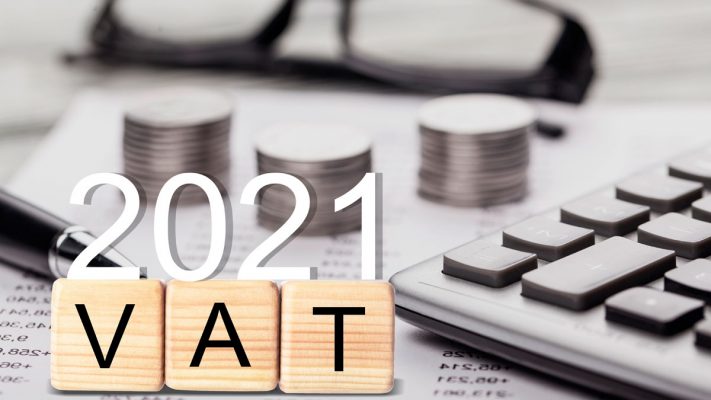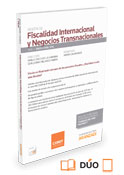
In this Christmas and Holiday Season, I couldn’t be happier to be back on this platform. Usually, when year-end approaches, we try to review what the important markers of the year were. Today, I would like to highlight a few of these markers which occurred in value-added tax (“VAT”) in 2021. They were long awaited, like a prophecy and a promise, to us humankind!
While 2021 was still not a normal tax year due to the devastative effects of Covid-19, many governments around the world extended and/or presented additional VAT relief measures, such as reduced VAT rates on goods and services, reduced VAT interest rates on payments, extension of deadlines for VAT returns and payments, etc.
Besides these graspable measures, in my view, some important announcements and a case law marked this year, which I would like to present.
In December the EU Council announced new rules on VAT rates. Also, new measures on the E-Commerce VAT Package came into force in July 2021, establishing new rules on B2C online sales. Finally, as a society we witnessed the outcome of a Court of Justice of the European Union (“CJEU”) case that reaffirmed the use and enjoyment rules for telecom[1].
- New rules on VAT rates
New rules on VAT rates were announced by the European Council on December 7, 2021. They were part of the 2018 Proposal, tabled in 2018, where the proposal took an opposite discretion As we all know, most of the EU member states present reduced VAT rates on goods and/or services, where they can differ from one member state to another. The agreement reached and announced treats member states equally and provides more flexibility in applying the reduced VAT rates. Additionally, they are in line with EU environment priorities “The rules will also phase out preferential treatments for environmentally harmful goods.”
The amendments are mainly with respect to goods listed in Annex III of the VAT Directive 2006/112/EC, to more reflect items used in today’s society, for example, the inclusion of the new supply of children’s apparel in Point 24, the supply of an “electrical bicycle” in the newly added Point 25, and digital broadcasting -including webcasting and reception by internet in Point 10[2]. Please see the link to the paper and the list of goods and services: pdf (europa.eu).
These new rules set the base of two reduced rates applicable, but not less than 5%, which are applicable to the list in Annex III. Only 24 points of supplies could be subject to the two reduced rates, as set by the member states. Hence, with these new rules, a wider range of goods and services could be subject to lower VAT rates, 24 of which could be subject to as low as 5%. In addition, member states are given the possibility to apply “a reduced rate lower than the minimum of 5 % and an exemption with deductibility of the Vat” [3]to only 7 points of supplies in Annex III.
This is good news, not only because we are “finally” witnessing a possibility of harmonization of the VAT reduced rates within EU, but also because this could be reflected in the wallet of the consumers.
- VAT E-Commerce Package:
Consumer behavior worldwide, where online business increases tremendously, is influencing VAT policies and accelerating the growth of e-commerce markets. Earlier this summer, the previously discussed and announced VAT e-commerce package entered into force on July 1, 2021. Initially, the proposed date was January 1, however due to the brexit and the challenges during this year, it was postponed to July 1.
The VAT e-commerce package is one of the EU priorities under the Digital Single Market Strategy, where rules are to facilitate cross-border trade, combat VAT fraud and ensure fair competition for EU businesses. It consists of a reform to the VAT obligations that were in place, where the main changes will simplify VAT returns and will impact the way online sales happen across the EU.
1) Distance Sales threshold
In the pre-July 2021 rules, e-commerce suppliers engaging in mail-order sales and in a B2C transactions, when in a different member state, had the possibility of choosing to charge local VAT in the country of delivery, as long as their sales didn´t reach the threshold set by each EU country. However, once the sales threshold is exceeded, the supplier had the obligation to register for VAT purposes and settle local VAT in the country of destination. This resulted in many SMEs avoiding registration for VAT purposes in the country of destination, and consequently supplementary costs related to VAT registration, VAT compliance, and tax/legal support.
The new measures set the definition of intra-Community distance sales of goods, which is to replace the one of distance sales of goods. Furthermore, it allows the setting of the new sales threshold across the entire EU to EUR 10,000 and covers intra-Community distance sales of goods.
2) Low Value Consignment Relief (“LVCR”) abolished
The LVCR was a VAT measure that exempted the imports of goods lesser than €20. This rule was removed, which means now all B2C consignment will be subject to VAT. Evidently, the ones that present a low value of €150 or less would be reported via the IOSS portal at the point of sale. For goods that exceed this amount, the existing rules will continue to apply.
3) Launching the One-Stop Shop (“OSS”) and Import One-Stop Shop (“IOSS”)
The One-Stop Shop (“OSS”) and the Import One-Stop Shop (“IOSS”) are in extension to the MOSS (“Mini One Stop Shop”) by removing the VAT exemption for low-value imports, and by including more services and goods, even those imported into the EU.
Using the OSS, taxpayers can register once and file one EU VAT return for ecommerce distance sales across the EU, as well as the suppliers and online marketplaces selling imported goods can collect and pay VAT directly.
- SK Telecom (Case C-593/19):
Last spring, the CJEU reviewed the use and enjoyment rules for telecom services in the SK Telecom case and dealt with the transfer of the place of supply of roaming services from a non-EU to the EU, in a case where an entrepreneur established in the third country provided services to a customer established in the third country but who used the telecommunications service while traveling in the EU. The decision of the CJEU appears to represent a broader application of use and enjoyment rules than previously understood and requires careful consideration.
Facts:
SK Telecom, a mobile phone company based in South Korea, provided roaming services from an Austrian mobile communications network company to its private customers, who were also resident in South Korea.
The Austrian network charged SK Telecom fees for using the mobile communications network plus Austrian VAT of 20%. Clearly, SK Telecom invoiced its customers roaming charges for using the Austrian mobile communications network during their temporary stay on Austrian territory.
SK Telecom’s application for an input VAT refund on their payments for the Austrian network services was denied because, according to the Austrian tax authorities, the place of supply for the roaming services shifted from the third country (South Korea) to Austria pursuant to a domestic Austrian Regulation based on Article 59(a) of the VAT Directive, since the roaming services were «used and enjoyed» in Austria, and the services rendered are not subject to a tax burden in the third country comparable to domestic Austrian VAT.
Decision:
The CJEU recalled that services usually should be taxed at the place of consumption. In the case of telecommunications services supplied to non-taxable persons (individual consumers), not established in the EU, this place would be outside the EU.
Nevertheless, paragraph 59(a)b) of the VAT Directive allows member states to consider the place of supply of telecommunications services, situated outside the EU, to be situated within their territory, if the effective use and enjoyment of those services is within their territory.
The CJEU therefore considered whether the roaming services are actually used or enjoyed in Austria. According to the court, “It thus follows from the very nature of roaming services that the effective use and enjoyment of those services necessarily takes place within the territory of the Member State concerned during SK Telecom’s customers’ temporary stays in that territory”[4].
As for Article 59(a) of the VAT Directive where double taxation, nontaxation or distortions of competition must be avoided, the court stated that the tax treatment of the respective services must be assessed by reference to the tax treatment of the services concerned in the member states, without it being necessary to consider the tax regime to which those services are subject to in the third country concerned.
What are we learning from this case:
- In order to be able to establish if telecommunication services are indeed effectively used and enjoyed within the territory of a Member State, the nature of the services, is the key element to be considered.
- It is irrelevant to consider the length of stay in a Member State territory, for the purpose of establishing if the telecommunication service was effectively used an enjoyed in that territory.
- It is not because the telecommunication service is taxed in a third country, that the member state wouldn’t tax it as well if it is effectively used and enjoyed there.
These were the three major VAT changes of 2021, that made a significant change in the indirect tax area, just like the light in the darkness. I, personally, am looking forward to further announcements and positions by the EU, hoping that the New Year will bring further positive change.
I wish you all a very Merry Christmas and a Happy New Year “coronavirusless” full of hope, prosperity and especially health!
Cheers to new beginnings!
[1] SK Telecom co. Ltd (Case C-593/19) hereinafter (“SK Telecom”)
[2] Proposal for a COUNCIL DIRECTIVE amending Directive 2006/112/EC as regards rates of value added tax – General approach, pdf (europa.eu), p. 19.
[3] Ibid., Art. 1
[4] SK Telecom, parag. 39




